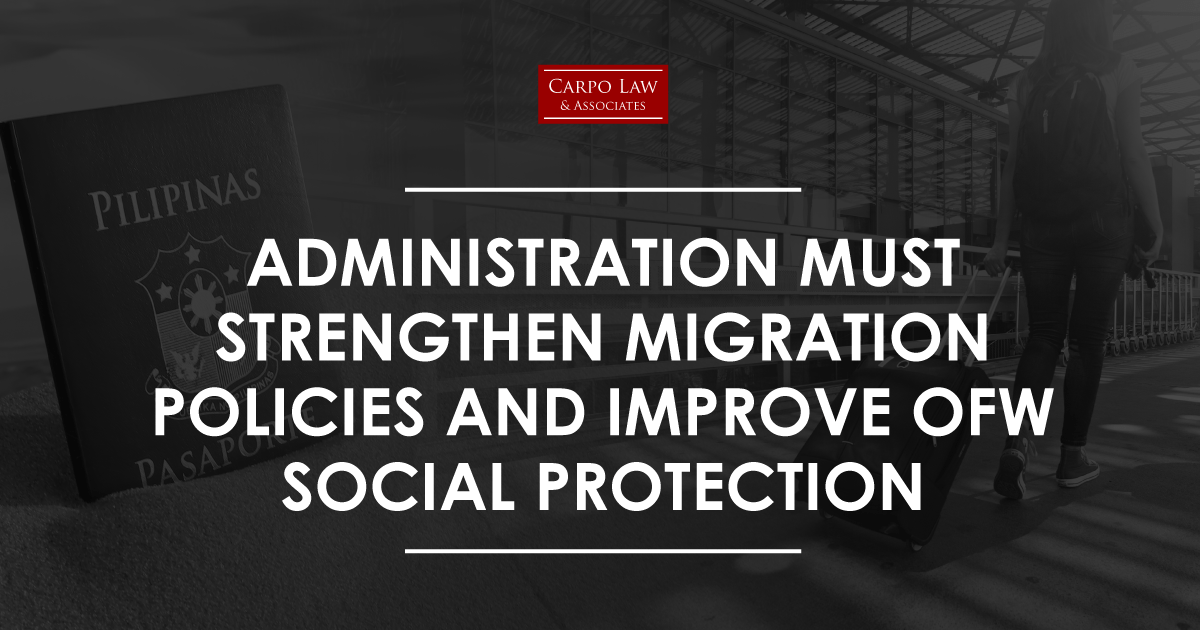
Administration Must Strengthen Migration Policies and Improve OFW Social Protection
According to the Philippine Institute for Development Studies (PIDS), the government will need to strengthen labor migration rules as well as boost social protection programs to support overseas Filipino workers (OFWs), who play an essential role in the economy.
PIDS senior research fellow Jose Ramon Albert and Aubrey Tabuga, supervising research specialist Jana Flor Vizmanos, research analysts Mika Muñoz and Angelo Hernandez, and Philippine Tax Academy chancellor Teresa Habitan stated that OFW remittances have become a significant contributor to the economy, representing around 10 percent of the gross domestic product (GDP).
While remittances help OFWs’ families and consumer purchasing, the authors noted that labor migration might cause emotional distress as families are divided and have complex transnational interactions.
The proposals on strengthening labor migration policies and increasing social protection programs for OFWs were made in this context.
The authors cited, considering the need to address concerns like wage theft, contract breaches, and workplace exploitation. “Recent legislation has led to the establishment of the Department of Migrant Workers, but continuous reinforcement of legal frameworks is essential.”
Given the prevalence of inhumane employment practices, they believe that stronger safeguards should be put in place to protect OFWs and properly resolve abuse situations.
The authors mentioned, “Simultaneously, fostering economic growth and expanding job opportunities within the Philippines is vital in reducing the reliance on labor migration.”
The report also emphasized the importance of improving social protection programs and other types of assistance for OFWs and their families, such as health insurance, pension plans, and unemployment benefits.
The authors stated, “Furthermore, addressing mental health and providing essential social support to both OFWs and their families is equally vital. OFWs are at a higher risk of developing mental health problems due to the stress of working abroad and separation from their families.”
Since remittances are mostly used for consumption, the authors advocated for the encouragement of financial literacy programs to teach OFWs how to handle their wages, savings, and investments.


